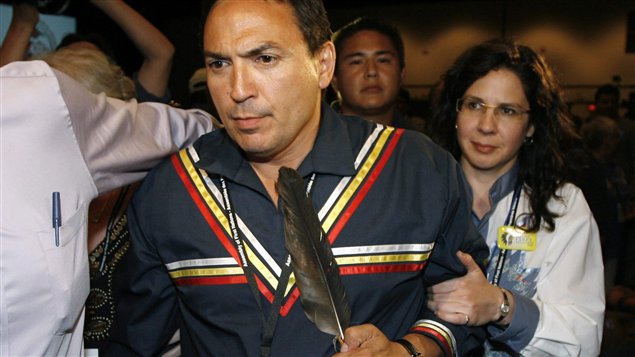Chief Perry Bellegarde is leading a party of First Nations war veterans and others to London, England this weekend to honour the 250th anniversary of the Royal Proclamation on Monday October 7th.
Sometimes referred to as the “Indian Magna Carta”, the Royal Proclamation, was issued by King George III in 1763 to officially claim the land in North America, following the British victory over the French in the Seven Years War.
The proclamation prevented settlers from claiming land from the First Nations, until it was bought by the Crown and then sold to the settlers. And it established that only the Crown could buy land from First Nations. The proclamation acknowledged all land as Aboriginal territory until it would be ceded by treaty. Here is an excerpt from the document:
“And We do hereby strictly forbid, on Pain of our Displeasure, all our loving Subjects from making any Purchases or Settlements whatever, or taking Possession of any of the Lands above and reserved, without our especial leave and Licence for that Purpose first obtained.”
The proclamation is what many First Nations refer to in their dealings with the Canadian government over land rights today. But there are questions in legal circles on both sides as to how the proclamation applies now, and does it apply to British Columbia, the province which had not even had contact with the Europeans in the 17th century.
We have an upcoming interview on Chief Bellegarde’s trip to London, England and the meaning of this anniversary for Canada’s aboriginal people, and why the team is going without Prime Minister Harper’s blessing.







For reasons beyond our control, and for an undetermined period of time, our comment section is now closed. However, our social networks remain open to your contributions.